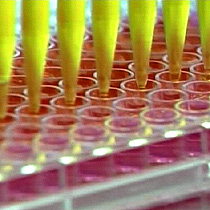-
(单词翻译:双击或拖选)
By Melinda Smith
Washington
01 June 2007
A growing number of critics are calling for stricter regulation of the pharmaceutical1 industry and how drugs are sold in the United States. The concern comes from medical experts, consumer groups and even from within the government agency in charge of the drug approval process. VOA's Melinda Smith has details.
 |
A report in the New England Journal of Medicine indicates that U.S. drug advertising3 to consumers rose by almost 300 percent from 1997 to 2005. Spending by pharmaceutical companies to promote their products to doctors increased by 86 percent. Money spent on drug research and development was up by at least 100 percent.
Critics say the massive investment to sell these drugs is part of the problem. At present the U.S. Food and Drug Administration, the government agency which approves drugs and regulates their safety, has no power to block the marketing5 of new drugs before safety studies have been completed. There is a bill pending4 in the U.S. Congress to give that power to the FDA.
But critics say the Food and Drug Administration's handling of older drugs on the market is also flawed. Recent studies showing the risk of heart attacks associated with the diabetes6 drug Avandia – as well as the 2004 voluntary withdrawal7 of the pain reliever Vioxx – have been cited as failures of the drug approval process.
Even Dr. Janet Woodcock, a senior official with the FDA, admits the situation is troublesome. "We are finding more problems with marketed medications, but not just with recently marketed medications, with drugs that were approved long ago."
One report indicates at least half of drugs already approved have needed further safety labeling. In some cases, drugs were considered so unsafe they were removed from the market.
Dr. Jerry Avorn of Brigham and Women's Hospital in Boston, Massachusetts says the regulations are out of date. "We don't have a good system for finding out if a drug is dangerous until it's been on the market for many years. And that's not acceptable."
Another problem: participants in human trials are often healthier than patients for whom the drug is designed. Dr. Avorn says, "A drug that works well in hand-picked patients who are guaranteed not to be terribly sick is not likely to have the same safety or efficacy as it does in typical patients."
There are also concerns the duration of drug trials are often too short and too few people are tested. After a new drug winds up on drugstore shelves, the FDA requires pharmaceutical companies to continue studies on that drug. The FDA acknowledges that companies routinely fail to complete that process.
Dr. Brian Strom of the University of Pennsylvania says the U.S. Congress needs to give greater enforcement authority to the FDA. "Congress hasn't given the FDA the authority to force companies to do such studies."
Before the AIDS scare 20 years ago, the Food and Drug Administration had been criticized for taking too long to approve new medications. Now it is criticized for not taking long enough.
 收听单词发音
收听单词发音
1
pharmaceutical

|
|
| adj.药学的,药物的;药用的,药剂师的 | |
参考例句: |
|
|
|
2
pharmacy

|
|
| n.药房,药剂学,制药业,配药业,一批备用药品 | |
参考例句: |
|
|
|
3
advertising

|
|
| n.广告业;广告活动 a.广告的;广告业务的 | |
参考例句: |
|
|
|
4
pending

|
|
| prep.直到,等待…期间;adj.待定的;迫近的 | |
参考例句: |
|
|
|
5
marketing

|
|
| n.行销,在市场的买卖,买东西 | |
参考例句: |
|
|
|
6
diabetes

|
|
| n.糖尿病 | |
参考例句: |
|
|
|
7
withdrawal

|
|
| n.取回,提款;撤退,撤军;收回,撤销 | |
参考例句: |
|
|
|















